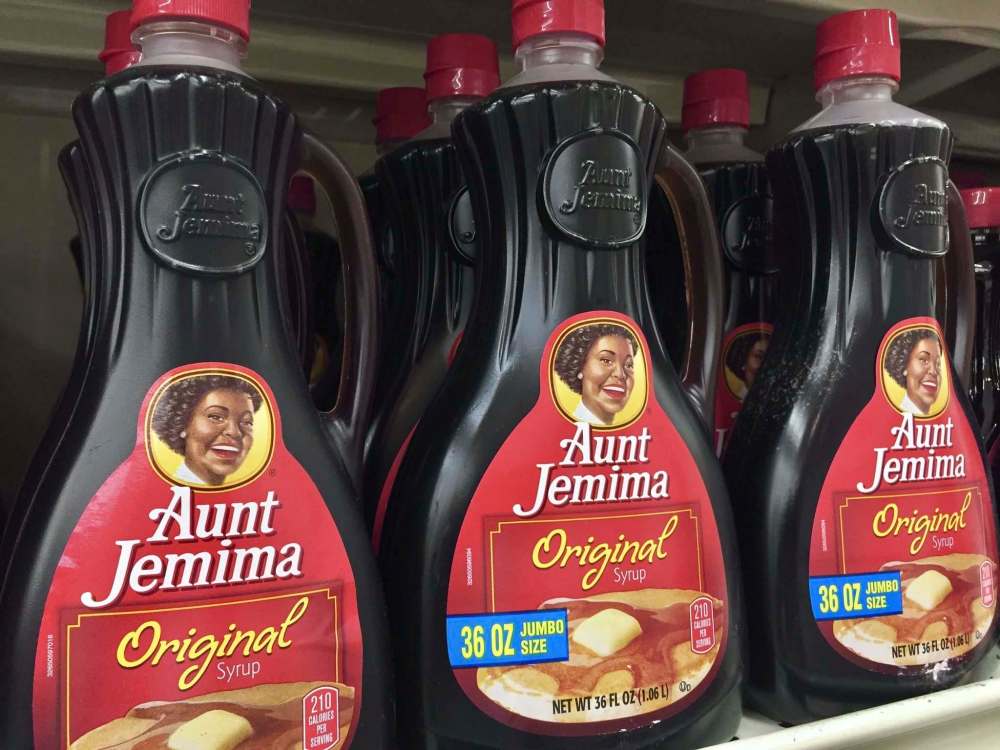A ‘retirement’ date that’s long overdue
Advertisement
Read this article for free:
or
Already have an account? Log in here »
To continue reading, please subscribe:
Monthly Digital Subscription
$1 per week for 24 weeks*
- Enjoy unlimited reading on winnipegfreepress.com
- Read the E-Edition, our digital replica newspaper
- Access News Break, our award-winning app
- Play interactive puzzles
*Billed as $4 plus GST every four weeks. Offer only available to new and qualified returning subscribers. Cancel any time.
Read unlimited articles for free today:
or
Already have an account? Log in here »
Hey there, time traveller!
This article was published 25/06/2020 (1681 days ago), so information in it may no longer be current.
After 130 years, Aunt Jemima is “retiring.”
Quaker Oats, which is owned by PepsiCo., announced last week the Aunt Jemima name and image will be removed from pancake syrup and pancake mix packaging, acknowledging that the character is based on a racial stereotype. (Uncle Ben is also on his way out.)
It’s a commendable, if overdue, move in the name of social change — one that has been met with both praise and predictable pushback.

Reagan Escudé, a student who was invited to speak this week at a Students for Trump event in Arizona, was roundly mocked on social media for earnestly suggesting in a speech ostensibly about cancel culture that, “Nancy Green, the original, first Aunt Jemima, she was the picture of the American Dream.”
Apparently — in her view, at least — the American Dream involves having your face slapped on a jug of high-fructose corn syrup with a racist-stereotype name.
Ms. Green was born into slavery in 1834; she was hired by the R.T. Davis Milling Company to portray Aunt Jemima, a “mammy” caricature. In 1893, she performed in character, holding cooking demonstrations and singing songs about the Old South at the World’s Columbian Exposition in Chicago. When she died in a horrific accident in 1923, the Chicago Daily News headline read “Pan-Cake ‘Mammy’ Is Dead.”
Ms. Escudé’s remarks underscore a truth about North America and corporate brands. According to a 2010 study, logos can be recognized by children who can’t yet read; these symbols serve as something of a capitalist hieroglyphics, communicating one’s personal tastes and preferences as well as one’s values and loyalties.
It makes sense, then, that some people become very attached to these logos, mascots and names, and chafe at the idea they might, at any time, change.
Such feelings of emotional investment might explain recent pockets of outrage over the “leftist mob” coming for those comforting stereotypes.
When Ms. Escudé said Aunt Jemima is a face we love and have in our pantries today, one has to wonder who she meant by “we.” Who is finding comfort in Aunt Jemima?
“The character of Aunt Jemima is an invitation to white people to indulge in a fantasy of enslaved people — and by extension, all of Black America — as submissive, self-effacing, loyal, pacified and pacifying,” culinary historian Michael Twitty wrote in a recent commentary. Aunt Jemima’s look may have changed over the years, but what she represents — and the idea her image is being used to sell — hasn’t changed all that much. Can we really say Aunt Jemima is “from a different time” if she’s still with us today?
If breakfast-food stalwart Quaker Oats can discontinue a 130-year-old brand name and image despite decades of recognition and loyalty, surely sports teams such as the Edmonton Eskimos, Cleveland Indians, Washington Redskins, Atlanta Braves and others can follow suit. Phasing out a racist-cartoon logo (Cleveland) or a “tomahawk chop” (Atlanta) cheer rings hollow if you’re still clinging to a relic of a name.
Changing these images and names — and, better yet, acknowledging where they come from — is not insignificant. This isn’t just about a bottle of pancake syrup or a baseball team’s name; it’s about how stereotypes infect and shape everything from breakfast and domestic ideals to a national pastime, and who gets to participate in them.
As certain sectors fight to keep these old images and names, it’s worth asking what, exactly, they’re fighting for. And, perhaps, what exactly they’re afraid of losing if those stereotypes are finally “retired.”


